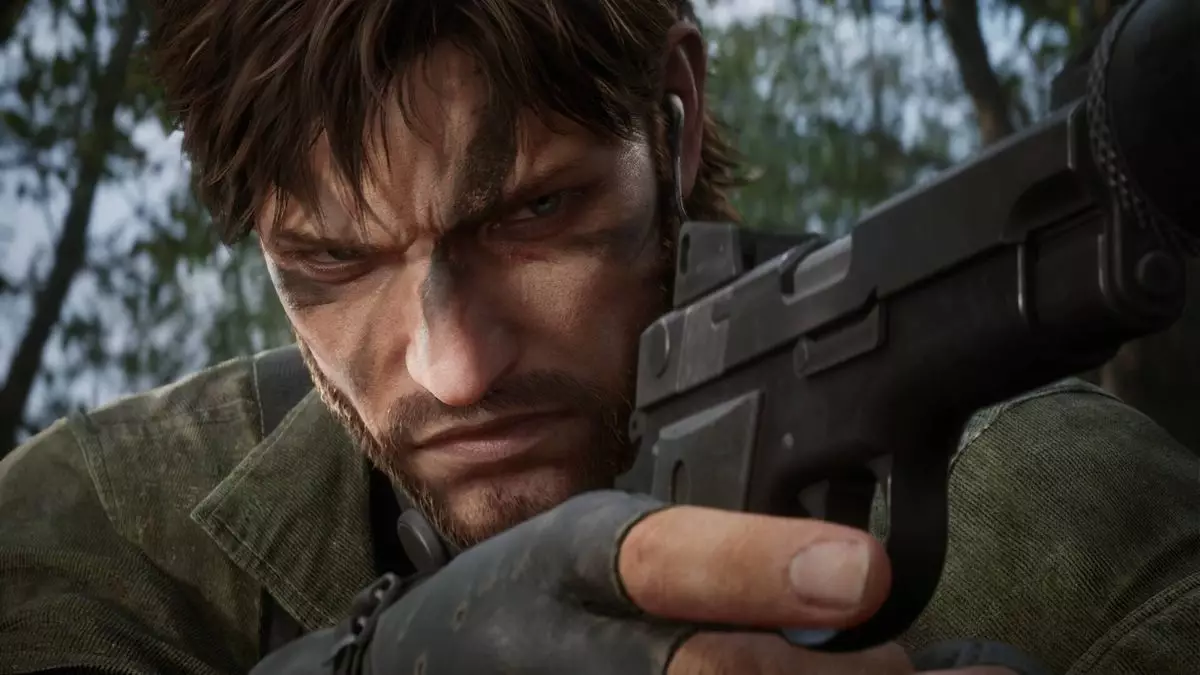It can be a surprising revelation for long-time fans of the Metal Gear series to acknowledge that many younger gamers might not even recognize the iconic figure of Solid Snake. This concern was voiced by Noriaki Okamura, the producer behind the upcoming title, Metal Gear Solid Delta, in a recent interview with Play magazine. The franchise, a groundbreaking cornerstone of gaming history, faces a unique challenge as it approaches a generation of players potentially unfamiliar with its rich narrative and complex characters. With the first installment of what is now seen as a classic released over two decades ago, the gap between nostalgia and current gaming culture widens.
For an industry where trends evolve monthly, it becomes crucial for developers to capture and retain the attention of younger audiences who may have gravitated towards newer franchises. Okamura articulated his team’s motivation behind creating this remake, acknowledging that it was driven significantly by the realization that Metal Gear’s legacy was, to an extent, fading from the collective consciousness of players under 30. As the cultural relevance of iconic characters like Solid Snake and stories that intertwine tactical espionage with deep philosophical questions wanes, the threat of losing an influential narrative altogether becomes real.
The endeavor to breathe new life into Metal Gear Solid Delta is not just about catering to the nostalgia of older fans. Okamura highlights a strong commitment to ensuring that the essence of the series is passed down to future generations. This vision extends beyond mere remastering—it’s about creating a narrative experience that resonates with new players while honoring the original content. The idea is to build a bridge between the past and the future of the franchise, reminiscent of how Solid Snake himself operates in a world filled with challenges and responsibilities.
One notable decision that reflects this intention is Konami’s choice to represent this remake with the Greek letter delta, rather than by the familiar numbering system that has graced previous titles. While this might initially seem unconventional, it symbolizes a new direction aimed at inviting newcomers into the fold of a storied franchise. By starting with what is chronologically the earliest game in the series, Konami is not just returning to roots, they are also reshaping the narrative’s entry point for younger audiences.
As Metal Gear Solid Delta approaches its release, it raises pressing questions about how franchises can evolve to stay relevant in an ever-changing gaming landscape. For a series with a legacy as intricate as Metal Gear’s, there exists an array of possibilities to explore—new gameplay mechanics, enhanced graphics, and perhaps even reimagined narrative threads that resonate with contemporary themes. The responsibility lies not only with the developers to innovate but also with long-time fans to share the depths of the series’ history with new players.
Ultimately, Metal Gear Solid Delta is a pivotal moment in gaming history, representing both an homage to the past and a bold step towards a transformative future. As the industry witnesses a cultural shift among gamers, the challenge will be ensuring that the compelling stories and characters of Metal Gear resonate well beyond their time, proving that some tales are worth retelling—with a new generation to appreciate them.

